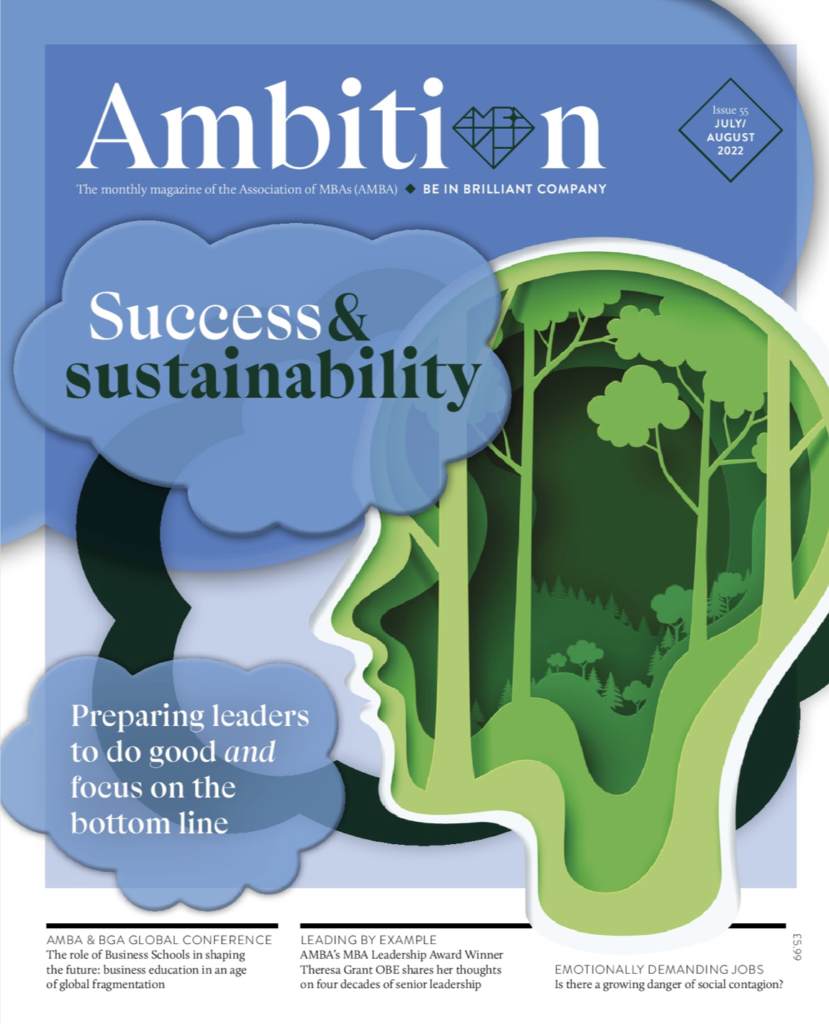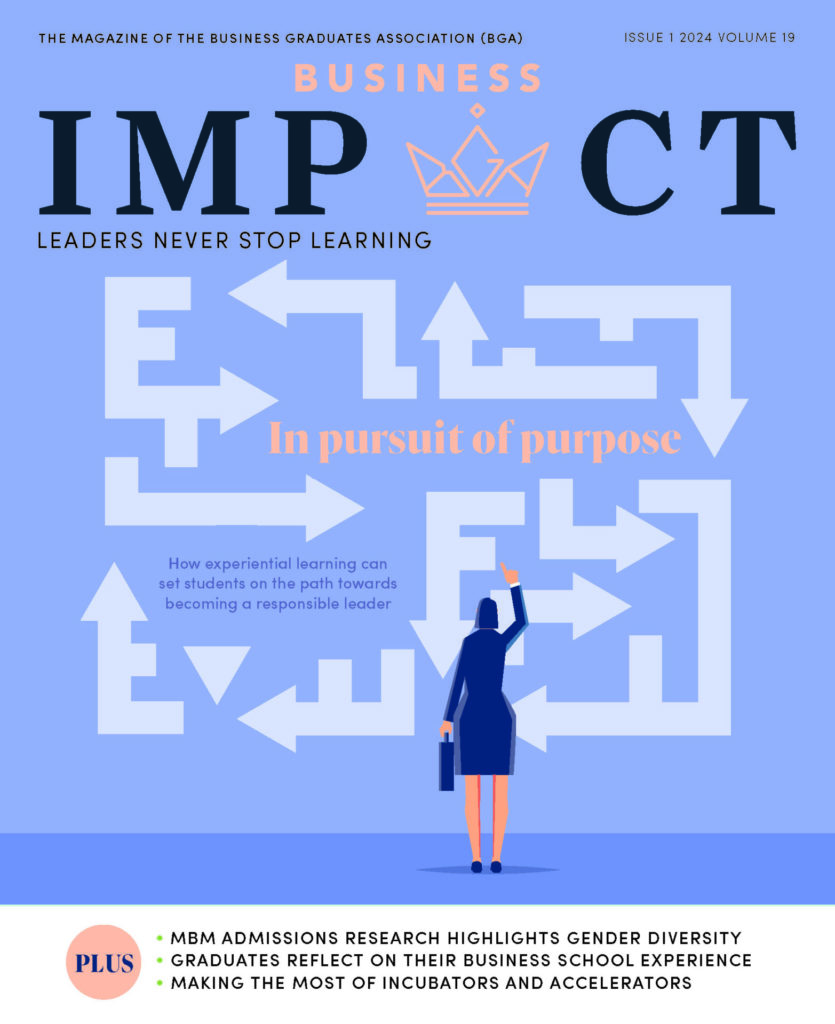Runaway climate change and rampant inequality are ravaging the world. Who will lead us to a better future?
These massive challenges – and shifts, including pandemics, resource pressures, and shrinking biodiversity – threaten our existence. Megatrends, such as the push for a clean economy and the unprecedented focus on diversity and inclusion, offer exciting opportunities to heal the world and prosper. But governments cannot do this alone, and business must step up.
Paul Polman, former CEO of Unilever and co-author of Net Positive explained how businesses and business schools can profit from fixing the world’s problems together, in discussion with AMBA & BGA CEO Andrew Main Wilson at the AMBA & BGA Global Conference 2022.
Given the crises in the world today, Main Wilson asked Polman about his own observations around the climate emergency. “The sense of urgency has never been higher,” said Polman. “The UK Met Office has predicted that we’ll pass 1.5 degrees of climate change in the next five years. Our current projection is a 14% increase of carbon emissions [by 2050]. Since Covid, we have seen an increase in climate action. [The pandemic gave us] a pause and a moment of reflection, and this led to a change in trajectory, which I think is here to stay.
“In 2021 alone, we added 30% more renewable power in Europe. Companies are moving and making commitments on science-based targets, which is important. We are at the point at which the cost of not acting is higher than the cost of acting. People are moving rapidly from seeing climate action as ‘risk mitigation’ to seizing an opportunity.”
But Polman added: “There are forces at play that are holding us back. Food and energy prices are holding us back. There is a part of government and even business that wants to go back to the ‘old world’ and get more fossil fuels from the ground.
We have to fight against this, because it would be a disaster. On food security, there are people who want to cut more forest to respond to the food crisis. We need to resist this and accelerate the transformation to more regenerative agriculture. We need to work together to deal with these global issues. We are growing apart – and this will be the biggest challenge, because we must work together as citizens of planet Earth.”
Polman moved to discuss the Unilever Sustainable Living Plan, which was designed to decouple growth of business from environmental impact, and to increase positive social impact.
“It is a philosophy through which we take responsibility for our total handprint in society,” he said. “We do not think companies can outsource their value chain and their responsibilities. Profit through purpose is very possible. Our purpose [at Unilever] was to make sustainable living commonplace, and this is important because it gave direction to the company and provided a sense of certainty. We wanted to be driven by impact, while being profitable.
“At Unilever, our engagement went up; our employer brand went up; our resilience and our value chain went up; our innovation started to increase – and all of this translates into better results. We truly behaved like billionaires – through supporting billions of people – and this is what counts. It starts with courage. Courage and commitment are vital. If science says we must cut carbon by 30%, we must make that commitment. But it takes courage to work with government to drive these commitments and the change.
“Ask yourself two very simple questions: ‘Am I solving the world’s problems or creating them?’ and ‘Is the world better off because my organisation is in it?’.”
Moving on to address the delegation of business school deans directly, Polman said: “Management education plays an incredibly important role in galvanising companies and broader society. You have to educate future leaders to do this. We are short of both leaders and trees. Business education is the most followed [academic area] in the world, and when people enter into it, they are still lofty in their goals and keen to make a difference in the world. When they leave, research shows, they want to make [more money].
“Somehow, we are turning wonderful human beings into monsters. This is a crisis of greed, selfishness, and apathy. It’s so important that we create these leaders who are systemic thinkers, driven by a sense of purpose, who embrace the power of partnership, and can think a little bit broader than the narrow definition of a business school, or maximisation of profits. They need to understand the power of humanity and taking care of our human capital.
“Management education needs a drastic change – and not a day too soon if we want to achieve these sustainable development goals. Rankings are still too based on starting salaries; research is valued in a way that makes co-operation difficult.”
Concluding the session, Polman said: “Two-thirds of students want to learn more about sustainability, and want it integrated into their programmes; 80% of students want to work for companies that use environmental practices. Frankly, universities are not responding at the level we need. Your own research shows that the bulk of [students] at your institutions recognise the importance of climate change, but only one third of Schools have [climate change] integrated in their curriculum – and it is not embedded in the whole learning experiences. I have to say there is still more work to be done at the academic level.”








